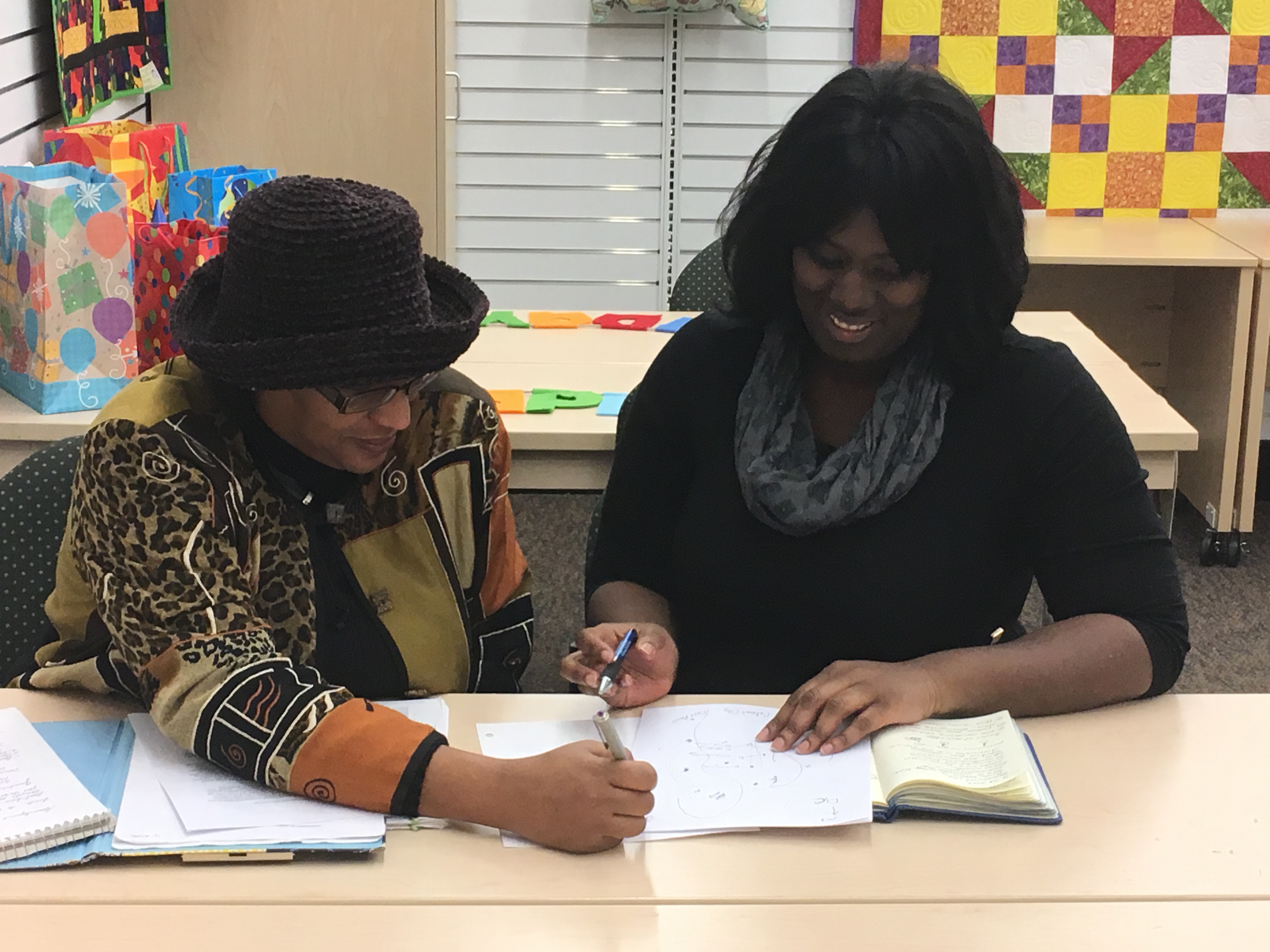July 18, 2017
Volunteering: Help others while helping yourself
Posted by AGU Career Center
People do things without getting paid (in other words, volunteer) for all kinds of reasons: to advance a cause they believe in; to help others; to spend time with friends; and many more. But in addition to making the world a better place, did you realize that some strategic volunteering could help advance your professional career?

From left to right, the community leader, Kamita Gray, and volunteer scientist, Akua Asa-awuku, who are collaborating on the TEX project in Brandywine, MD. Akua is volunteering to help the neighborhood coalition collect data to assess the magnitude and nature of air quality impacts from local industrial activity. Once complete, the neighborhood group will be able to use data to support conversations with utilities and government officials.
Gain a New Skill
Volunteering is a great way to learn a new skill, or get more practice with one. Most volunteer positions are low-risk environments, where anything you do will be appreciated, and you’re not expected to be an expert.
Spend some time thinking about what skills you need to improve to move ahead in your career. At your last performance review, was there anything you were asked to work on? Think particularly about interpersonal skills – public speaking, project management, budgeting, leadership, logistics, and so on.
Once you’ve identified an area that you want to improve upon, look for ways to get practice. If you want to get better at public speaking, volunteer to introduce the speakers at an upcoming event for your favorite charity—or volunteer to be a speaker. If you have trouble meeting new people, volunteer to work the registration table, so you get used to greeting people and making small talk.
By practicing in a non-professional environment, you build up your expertise and confidence, and can then apply what you’ve learned to your job.
You can also try something you’ve never done before, and see if you’re any good at it. For example, if you haven’t been involved in finances at work, volunteer to be treasurer for a local organization. You will learn about accounting practices and policies, managing budgets, and can find out if you are any good at those. If this new skill turns out to be something you really enjoy, you can seek out responsibilities at work that will integrate it into your professional life.
Get Real Experience
Prospective employers don’t care if you got paid to do something, they only care if you can do it. Of course, the best way to show you can do something is by having already done it. Volunteering can help you gain entry into a new field, by allowing you to get that first experience that proves you can do it.
For example, if you don’t supervise people in your day job, are you in a volunteer position where you supervise others? Could you organize an event that requires coordinating multiple volunteers?
Either of these would give you real-world experience that you can use both on your resume and during interviews, speaking from a position of experience, not hypotheticals. You can talk about what you did, how you did it, what you learned, and what you will do differently next time.
Expand Your Network
Often, one of the best parts of a volunteer experience is the people with whom you work. Being part of a team, especially one that works together over an extended period of time, can help cement your relationships, and firmly establish your teammates as part of your network. Shared experiences are great for bonding—especially the successful completion of a long-term project or event.
By following through on your commitments to the team or organization, you will establish yourself as a reliable professional. Even little things, like showing up on time and helping with set up and clean up can make a big impression. By exceeding expectations and always doing your best, you will build your professional reputation and your network of people who not only speak favorably of you when asked, but remember and recommend you on their own initiative.
Balance Your Life
Finally, volunteering adds another facet to your life. You need a place to get away from work—and usually when work is going badly, your volunteer project is going well. Volunteering for an organization whose mission you embrace makes you feel good, which re-energizes you to tackle those tough problems at work.
Volunteering doesn’t just make you feel good, it’s also good for you. By strategically selecting your volunteer opportunities, you can make the world a better place for others, while creating a better professional future for yourself.
Lisa M. Balbes, PhD, has been a freelance technical writer and editor at Balbes Consultants LLC for over 25 years. She is the author of Nontraditional Careers for Chemists: New Formulas for Chemistry Careers (Oxford University Press). As for her volunteer experience, she is the Director of STEM Quest at the Boy Scouts of America National Jamboree, 19-28 July, 2017.


 On the Job is an AGU blog, that provides career advice and workforce guidance to geoscience students, early-career and established professionals who are interested in pursuing professional enrichment.
On the Job is an AGU blog, that provides career advice and workforce guidance to geoscience students, early-career and established professionals who are interested in pursuing professional enrichment.